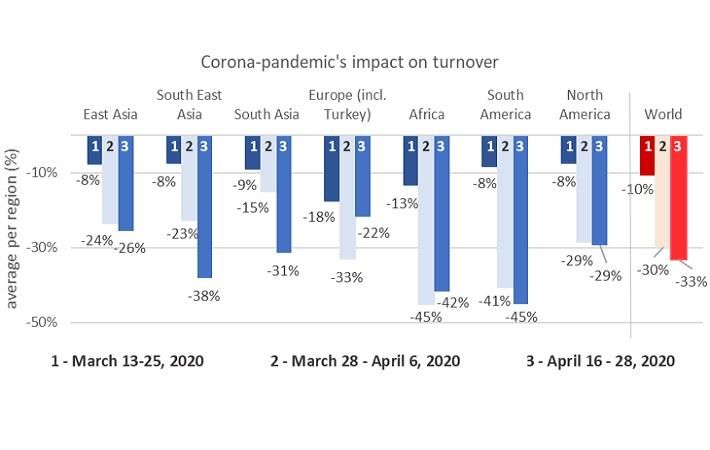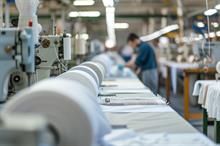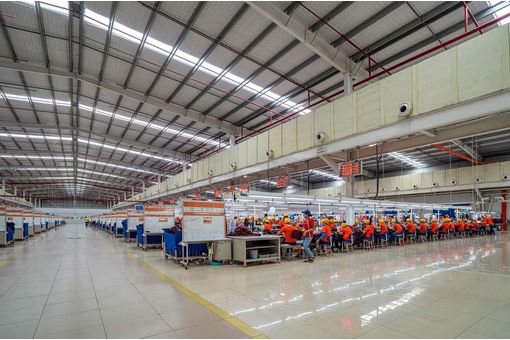Worldwide, current orders are down 41% on average: ITMF
30 Apr 20 3 min read

Orders in East Asia dropped visibly less (i.e. 28 per cent) than in all the other regions (40 per cent and more). It can be assumed that this region, which was hit first by the Corona-crisis, is also recovering first from it. Especially China and Korea were able to contain the epidemic successfully.
"In the last few weeks, most Chinese textile companies have ramped up production significantly. Likewise, off-line retail stores have reopened, and consumption is picking up again in East Asian countries. It remains to be seen what the consumption behaviour will be like in China, Korea and other places once shops are open again," ITMF said analysing the survey results.
The survey found that worldwide, expected turnover in 2020 is down by 33 per cent on average compared to last year. Companies in Europe are expecting turnover in 2020 to be down by “only” 22 per cent, a figure significantly better than the 33 per cent decline reported in the second survey. Companies in East Asia are expecting turnover to be down by 26 per cent, which is close to what was reported in the second survey (24 per cent).
Companies’ turnover expectations in South East Asia and South Asia on the other hand have deteriorated significantly. These regions were hit later by the Corona-pandemic and hence the full impact was felt with a delay. Compared to 2019, expected turnover for 2020 is down to -38 per cent in South East Asia and to -31 per cent in South Asia. Turnover expectations in Africa, South America and North America have not changed much since the second survey.
Securing enough liquidity, supply chain disruption, and uncertainty are the major challenges facing the textile industry, the survey results show.
As a result of the COVID-19 pandemic, companies are increasingly thinking about diversification, currently focusing on medical textiles; streamlining organisation and production processes; accelerating the reassessment of existing supply chains; and accelerating digitalisation and investing in sustainable production.
The survey says that many companies receive little to no help, even if governments have support policies in place. Government support can comprise: loans with low interest rates and deferred repayment, delayed tax payments, delayed social security payments, short-work schemes, and reduction of power costs.
"The biggest relief comes when retailers/brands discuss adaption to the unwinding crisis with their suppliers instead of cancelling orders unilaterally," the survey concludes.
Fibre2Fashion News Desk (RKS)















